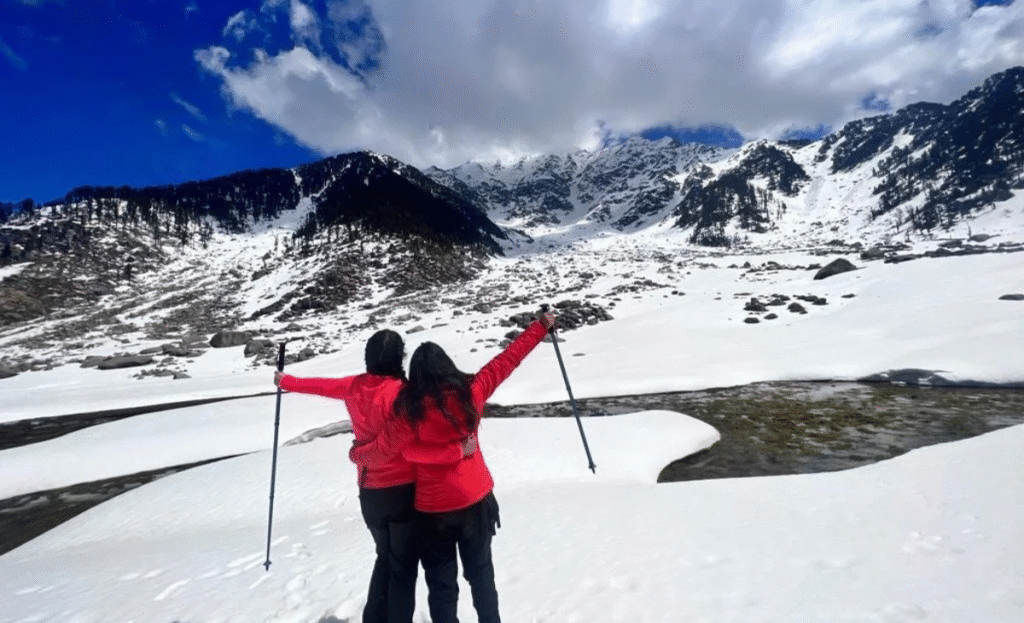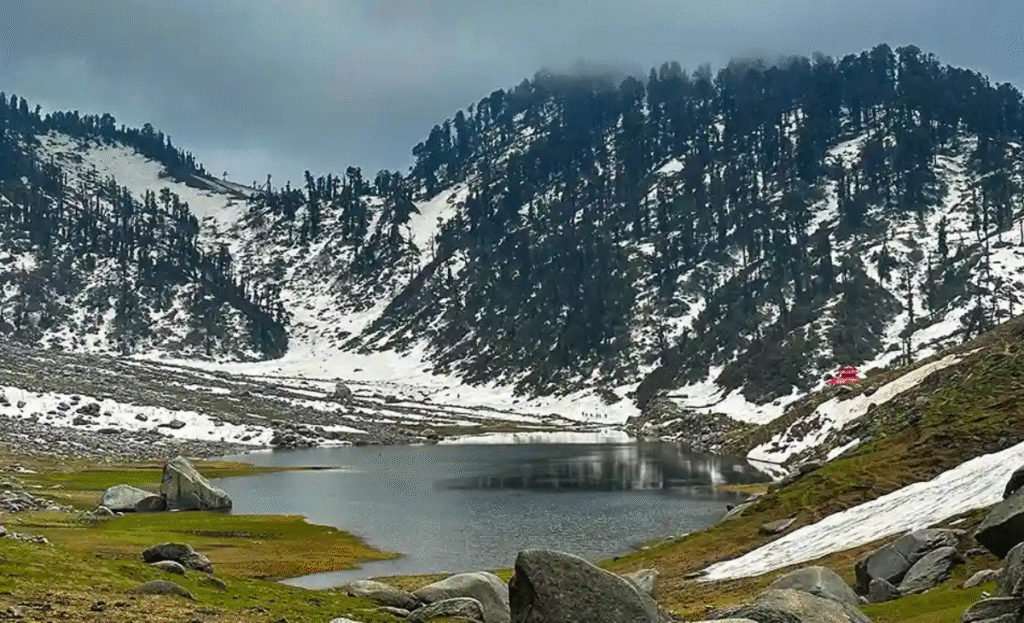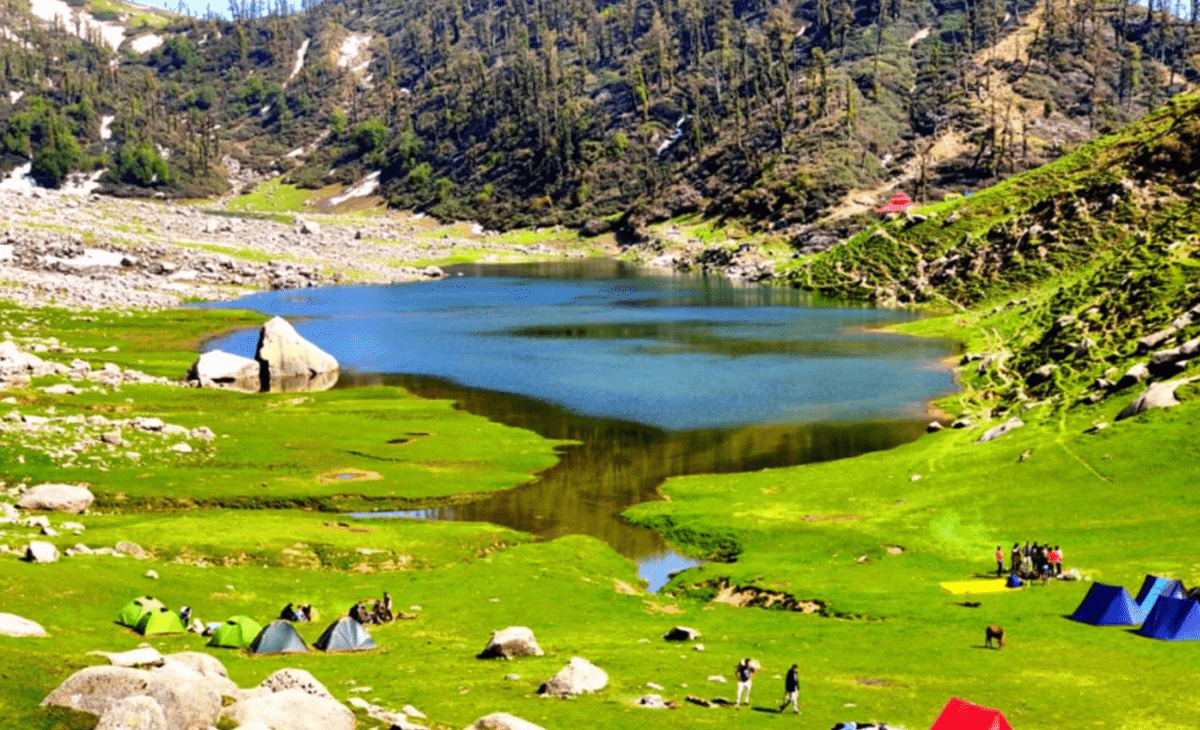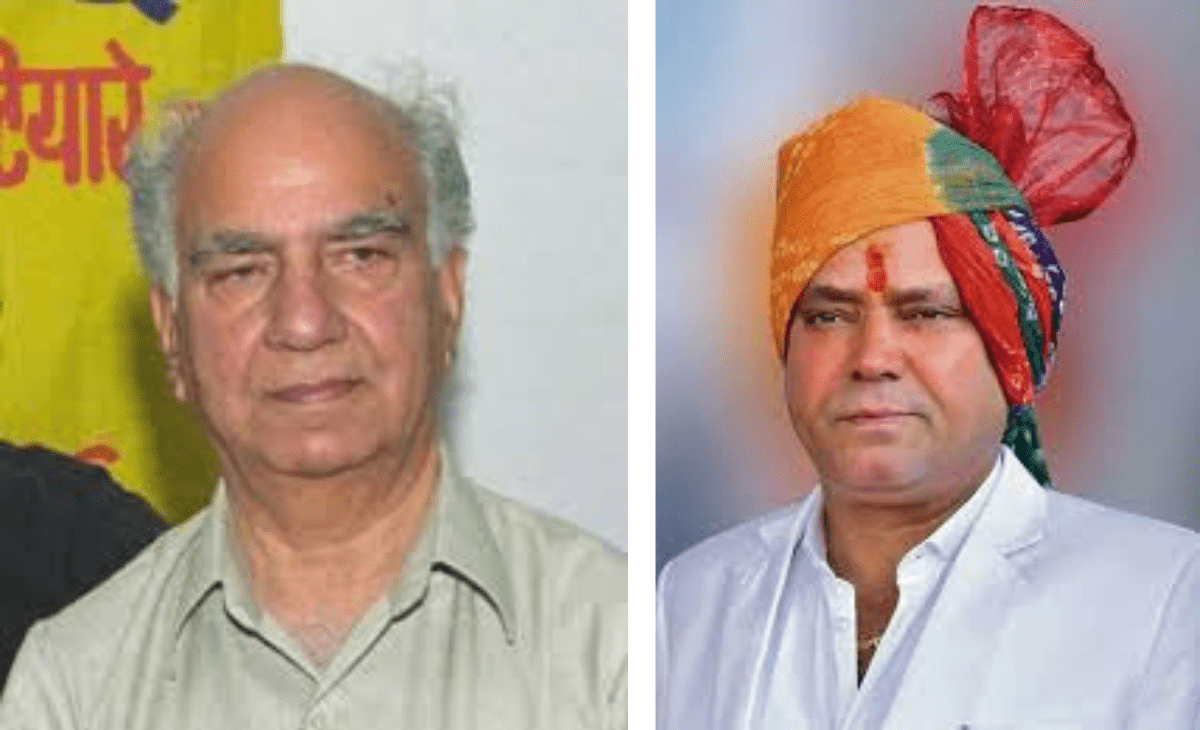Akshay Sood
Dharamshala : On June 14, 2025, along with some young family members, we undertook a 10-km trek from Nolli village, located about 2 km ahead of Kareri village, ascending from an elevation of 1,900 metres to over 3,000 metres, the height of Kareri Dal (lake).
Kareri Lake, locally known as “Dal”, is glacier-fed and located approximately 13 km from Kareri village and 10 km from Nolli, the nearest road head, under the Dharamshala sub-division of Kangra district in Himachal Pradesh.

The lake is fed by pristine glaciers upstream, which come into breathtaking view once you reach the lake. Kareri village itself sits at an altitude of around 5,500 feet and is located roughly 25 km from Dharamshala, a drive of about 1 hour and 30 minutes.
Covering 10-km trail in 4 hours
We started the trek at 12 pm from Nolli village and covered the 10-km trail in approximately 4 hours of walking, with breaks for lunch and tea adding another hour. We reached Kareri Lake at around 5 pm.
The Kareri trek is well-marked and easy to follow. I’d describe it as moderately difficult. The highlight of the trek is undoubtedly the trail running alongside the Kareri river, which originates from the lake itself. The river, with its numerous rapids and waterfalls, remained a constant companion throughout the journey and is a delight for the senses.

There are several natural spots to bathe or dip in the river’s cool waters. The trail largely follows the river valley, providing the soothing sounds of flowing water, beautiful landscapes and countless photo opportunities.
The beginning of the trek is steep but shaded by oak and rhododendron trees. Within half an hour of starting the trek, and at intervals thereafter, you’ll find several roadside cafés and dhabas offering refreshments — ideal rest points for trekkers. There’s really no need to carry food items with you.
One of the most comforting aspects of the trek was the occasional level trails in between steep climbs. These flat stretches offered welcome relief and a chance to catch your breath.
Tents, food, guides and camping facilities
Trekking and camping facilities are well-organised near Kareri Lake, with tent and sleeping arrangements available at rates ranging from Rs 1,500 to Rs 2,500 per person. Local guides are easily available to assist with navigating the route, carrying backpacks and sharing regional insights.
These services are largely offered by the local Gaddi community —traditional shepherds who have inhabited the region for generations.
During our visit in June, the trek seemed especially popular among young travellers, with around 200 visitors per day on weekends and fewer on weekdays.
Our guide – Lucky (Chandrashekhar)
Our guide, Lucky, whose real name is Chandrashekhar, was a young, energetic high school passout who had recently lost his father. Fit and resourceful, he had also worked seasonally as a waiter and steward in Leh and Goa, earning Rs 3–4 lakh per year.
His grandfather once had a hut at 9,000 feet in the Kareri hills, where he raised cows and buffaloes and produced khoya (milk solids) for supply to towns like Dharamshala and Shahpur.
Kareri Lake a base for journey towards Dhauladhar
Kareri Lake is a key base for those continuing further into the Dhauladhar range towards Lam Dal (12 km ahead) and Nag Dal —traditional shepherd routes to Chamba from the Kangra Valley.
The lake is also a local pilgrimage site during the Shravan month, especially on Janmashtami, when devotees visit and bathe in the sacred waters. A newly constructed Shiva temple near the lake adds spiritual charm to the setting.
The lake itself is large, serene and crystal-clear, surrounded by high-altitude meadows and offering close, uninterrupted views of the Kareri glaciers just 5 km beyond.
Visitors, noise & waste management issues
During our visit, most travellers appeared to be from the Kangra region, followed by tourists from Punjab, Jammu and young crowds from Delhi-NCR. A common sight was groups playing loud Hindi and Punjabi rap music on bluetooth speakers — clearly no interest in the classics of the 1960s or 1970s!
As per locals, Kareri Lake saw about 100 to 200 visitors daily during June. However, issues like open defecation and careless disposal of plastic bottles, wrappers and other waste were visible.
To address this, local authorities or the Forest Department could consider introducing an ecological fee of Rs 100 to Rs 200 per person to fund toilet facilities and waste disposal services.
Visitors should also be encouraged to bring down the waste they generate and dispose of it responsibly — either in the Nolli panchayat area or back in their hometowns, which often have better waste management systems.
On the final leg of our return, two of the younger members of our group (aged 18 and 22) surprised and inspired us by collecting two bags full of plastic waste and carrying them back to Nolli for proper disposal.
Akshay Sood
Retired IAS Officer





